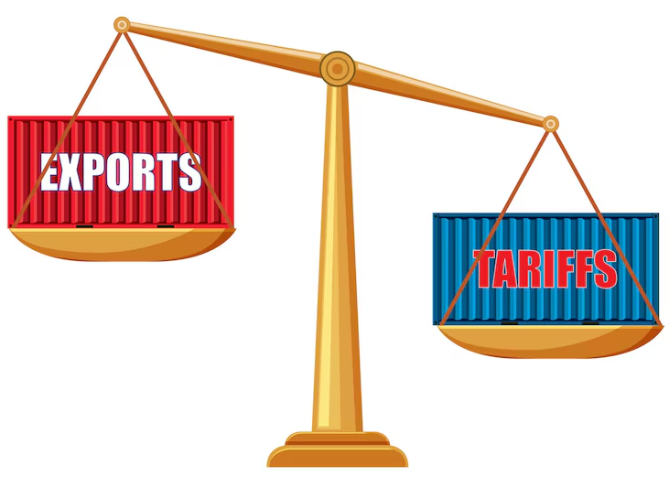In April 2025, the Trump administration announced a possible 29% tariff on imports from Pakistan to the U.S. While the implementation of these Trump Tariffs has been paused for now, there’s no guarantee they won’t be enforced later this year. This decision, though primarily a trade policy issue, could send ripple effects through Pakistan’s growing startup ecosystem in ways we cannot afford to ignore. Let’s break down why the Trump Tariffs matter for founders, investors, and the wider economy.
Let’s break down why this matters for founders, investors, and even the wider economy.
The Impact of Trump Tariffs on Pakistan’s Startup Ecosystem
Pakistan exports several products to the U.S. textiles, sports goods, and even some tech components. According to this report from PIDE and coverage from Dawn, these tariffs could cut Pakistan’s exports by $1.1 to $1.4 billion annually. That’s not just a loss in revenue, it’s a dent in our foreign exchange reserves, which are already fragile.
Now, what does this mean for startups?
How Pakistan’s Startups Can Adapt to the Trump Tariffs Challenge
Startups that deal with hardware things like medical devices, IoT gadgets, POS systems, or even ed-tech devices often rely on imported parts, especially from the U.S. and China. If these parts become more expensive due to tariffs or shipping complications, product costs will rise, margins will shrink, and the already tough journey of building hardware in Pakistan will become even harder.
So a startup that was building a health monitoring device for export or local hospitals might now need to delay production or raise prices, both of which are dangerous for early-stage survival.
Reducing Risk: How Startups Can Adapt to Trump Tariffs in the Current Economy
Global investors already consider emerging markets risky, and political unpredictability like sudden tariffs adds another layer of concern. Many Pakistani startups rely on foreign investment often from U.S. or UAE-based VCs.
If investors believe that Pakistan is no longer a stable base for exports, or that our startups may not survive higher costs and policy swings, they’ll either hold back or demand more equity for the same investment. That means less money for innovation, hiring, and scale.
Currency and Import Woes
Here’s another layer: Pakistan’s economy is already going through an IMF program. This makes dollars scarce and the rupee unstable. When exports drop due to tariffs, it becomes even harder to earn dollars. That affects everything from paying for cloud services abroad to importing basic tools.
So even SaaS startups that don’t export physical products may feel the pinch when they try to pay for things like AWS, Notion, or even Figma since they need dollars to make those payments, and dollar availability could shrink further.
Startups Will Start Pivoting: But to What?
What we’ll likely see is a shift away from hardware and exports, and more focus on local, digital-first solutions. This could be a good thing in the long run but only if the local economy has the capacity to absorb and support these solutions. Many Pakistani startups sell services globally, like freelance platforms or B2B SaaS products. If U.S. demand cools down due to economic changes, these startups will still face slowdowns.
Startups in fintech, e-commerce, and content may be safer for now, but they’ll also be affected by a general slowdown in funding, customer spending, and business optimism.
What Can Be Done?
Here’s where we need some coordinated thinking:
- Government must act: Pakistan’s Ministry of Commerce and Board of Investment should advocate for exemption or negotiation, maybe offering reciprocal trade benefits or transparency measures.
- Founders must diversify: Don’t rely on one market. Look at Europe, GCC, and Southeast Asia. Countries like Malaysia and UAE are more open to tech partnerships and less likely to impose harsh tariffs.
- We must localize production: This is the time for IGNITE, NICs, and even universities to support local manufacturing of components and tools. It’s not a quick fix, but it’s critical if we want long-term resilience.
- Invest in software and services: Startups that don’t rely heavily on imports should be given more support through grants, tax exemptions, and public procurement.
To Wrap It Up
Even though these tariffs haven’t hit yet, the threat alone is enough to shake confidence. Pakistan’s startup ecosystem is young, ambitious, and already battling inflation, political instability, and funding crunches. Trade barriers like these could slow our momentum just when we were gaining global recognition.
We need to be proactive. This is not just about protecting exports, it’s about protecting innovation, jobs, and economic hope.




